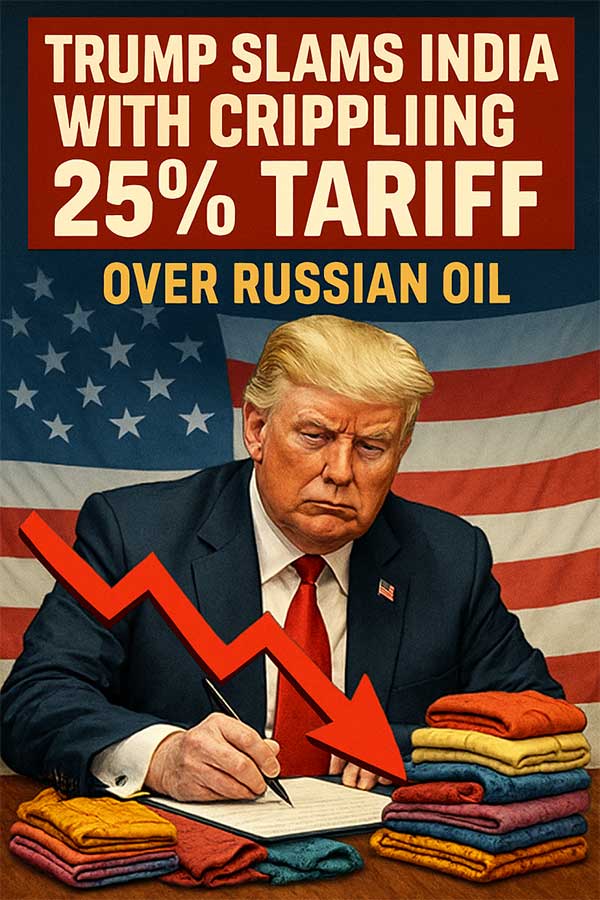 Excess unsold stock has become a multibillion-pound problem for fashion retailers whose trade is fast decimating as they are left with pounds of unsold spring and summer stock in their warehouses. Last week, UK-based brand Next recorded a steep decline in sales as more stocks are clogging up in its warehouses than was previously anticipated. To mitigate this risk, Next is using third-party storage facilities and holds some stock in source countries, at an estimated additional cost of £2 million. The brand has identified £330 million worth of spring 2020 stock comprising summer T-shirts and chinos – that can be carried over to next year.
Excess unsold stock has become a multibillion-pound problem for fashion retailers whose trade is fast decimating as they are left with pounds of unsold spring and summer stock in their warehouses. Last week, UK-based brand Next recorded a steep decline in sales as more stocks are clogging up in its warehouses than was previously anticipated. To mitigate this risk, Next is using third-party storage facilities and holds some stock in source countries, at an estimated additional cost of £2 million. The brand has identified £330 million worth of spring 2020 stock comprising summer T-shirts and chinos – that can be carried over to next year.
Despite taking such initiatives, retailers are still likely to be left with a glut of seasonal, trend-led products that have a short shelf life. This may lead to aggressive discounting. Hence, they need to find a way to ear piled up stocks. Raffy Kassardjian, Founder, Parker Lane Group, advises retailers to take a strategic approach spanning different geographies and not flood a single international market with product, particularly as this is likely to be an issue that affects several seasons.
Selling through off-price channels A report on the impact of coronavirus on retail by management consultancy McKinsey & Company points out another option for retailers. It says, retailers can now sell through off-price channels like Chinese ecommerce giant Tmall which recently launched an online outlet, Luxury Soho to promote its premium and luxury brands.
option for retailers. It says, retailers can now sell through off-price channels like Chinese ecommerce giant Tmall which recently launched an online outlet, Luxury Soho to promote its premium and luxury brands.
Some brands are also launching their own off-price platforms and flash sale events to move excess stock. For example, contemporary women’s wear brand Ganni launched a six-day pop-up digital sale at the end of April offering discounts of up to 70 per cent on 400 items. The brand will donate 20 per cent profits to UN Women projects that support female health workers on the frontline of the pandemic.
Another avenue open for these brands is sell their unwanted stock in countries that have been less affected by the pandemic. Business partners Sarah Curran-Usher, entrepreneur and a non-executive director at French Connection, and Nicola Mathews, a former brand director at Ted Baker and Pentland Brands, are collaborating with John Lau, founder of Chinese commerce specialist Ecargo, on a project to help brands and retailers move unsold stock from the UK into the Chinese market.
Re-evalute approach to unsold stock
However, while moving unsold stock to other countries, retailers have to think carefully about matching the stock to the right retail partner and the right consumer, views Dea Baker, founder Aqua Rock. According to her, the pandemic could provide the industry with a valuable opportunity to rethink its approach to stock.
Donating products to good causes is another option for retailers left with too much stock, argues Ronen Lazar, Co-founder and CEO of Inturn – a platform that helps retailers manage their inventory. Some brands are supporting charitable causes by moving their excess stock to social institutions. For example, Burberry has donated product to Smart Works, which provides free clothes and training for unemployed women with an upcoming job interview.
Sustainability from waste
Some smaller brands are also finding innovative solutions to help mop up excess stock in the market. Sustainable brand Aqua Rock has created a range of T-shirts made from cancelled stock produced by factories in Bangladesh.
Though in the current situation, heavy discounting is inevitable, retailers should look to the opportunities in off-price and international markets, to clear some of the stock without damaging their brand equity.












